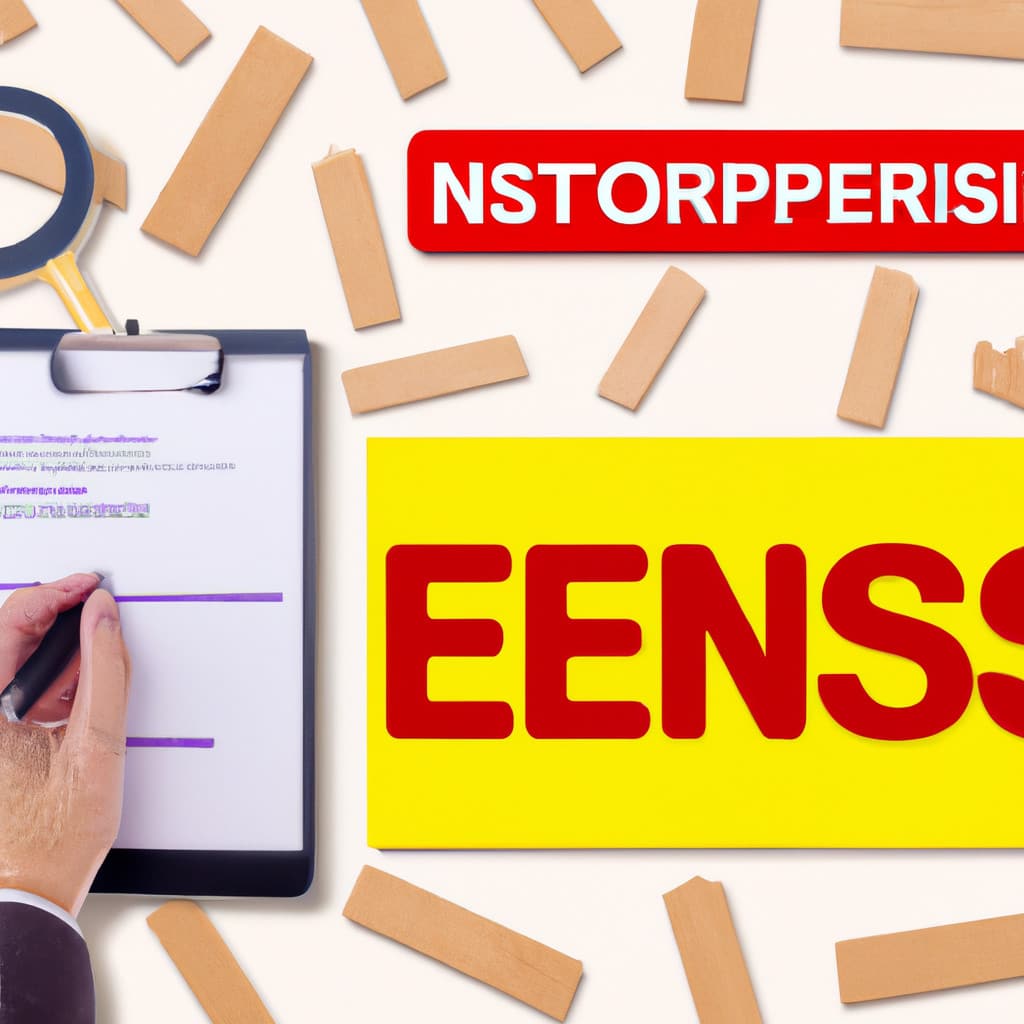7 Key Differences Between ScriptRunner and PowerShell Universal: A Comprehensive Comparison for Software Experts
In a world of automation, scripting has become integral to the daily tasks of software engineers. With numerous tools available in the market, it can be a daunting task to choose the one that best fits your needs. In this article, we’ll explore the differences between ScriptRunner and PowerShell Universal, two leading solutions for automation and scripting using PowerShell. By understanding the strengths and weaknesses of each platform, you can make a well-informed decision on which tool to adopt for your specific requirements.
# 1. Overview: ScriptRunner vs PowerShell Universal
ScriptRunner is an all-in-one solution that centralizes, automates, secures, and delegates administrative tasks using PowerShell scripts. It simplifies the management of complex IT infrastructure while enhancing monitoring and reporting capabilities. ScriptRunner is designed for enterprise use and provides advanced features such as delegation, auditing, and approval workflows.
On the other hand, PowerShell Universal is a modern platform for building web-based applications, APIs, and automation scripts on top of PowerShell. It is highly extensible and supports integration with popular developer tools like Git and Visual Studio Code. PowerShell Universal primarily targets developers and DevOps professionals who are looking to build custom solutions on top of PowerShell.
# 2. Deployment and Installation
When it comes to deployment, ScriptRunner can be installed on-premises as a standalone application or as a virtual appliance. The installation process is straightforward, and the system requirements are minimal, allowing the solution to scale easily within organizations of any size.
PowerShell Universal, however, offers more flexibility in deployment options. You can deploy it as a fully containerized application via Docker, as an on-premises application, or even as an Azure Web App. It also provides out-of-the-box support for reverse proxy configurations with popular web servers like IIS and NGINX.
# 3. Script Execution and Scheduling
Both platforms support the execution of PowerShell scripts, but their approach when it comes to scheduling differs significantly. In ScriptRunner, administrators can create and manage schedules for script execution using a user-friendly web interface. The scheduling feature also supports time-zone aware scheduling and exception handling.
PowerShell Universal, on the other hand, incorporates a more developer-oriented approach. You can create schedules in code using PowerShell cmdlets or by manually editing a JSON configuration file. While this provides greater control over scheduling options, it requires familiarity with PowerShell programming and may be less appealing for non-developers.
# 4. Extensibility and Integration
ScriptRunner focuses on providing out-of-the-box integrations with popular IT management tools like ServiceNow, Jira, and Microsoft 365. It also exposes a REST API for custom integrations, enabling seamless data exchange between ScriptRunner and third-party applications.
PowerShell Universal takes extensibility a step further, allowing developers to build custom web applications and APIs using PowerShell as the scripting language. This makes it easy to create custom solutions that leverage existing PowerShell skills while opening up new possibilities for application development and integration.
# 5. Role-Based Access Control (RBAC)
Both ScriptRunner and PowerShell Universal offer robust RBAC capabilities. ScriptRunner provides a comprehensive suite of features for delegating script execution to non-administrative users based on their role within the organization. It also supports approval workflows, ensuring that changes made by delegated users are reviewed and approved by designated approvers before taking effect.
While PowerShell Universal also supports RBAC, its implementation is more focused on managing access to web applications and APIs built on top of the platform. The granularity of control may not be as extensive as found in ScriptRunner, making it a better fit for developer-centric use cases rather than enterprise IT administration.
# 6. Pricing
ScriptRunner offers a subscription-based pricing model, with costs depending on the number of users and managed systems. The pricing can be quite steep for large organizations with complex IT infrastructure.
In contrast, PowerShell Universal takes a more developer-friendly approach to pricing, offering a free Community edition as well as a paid Enterprise edition that includes additional features like RBAC, Git integration, and enhanced support. This makes it a more accessible choice for smaller teams or individual developers looking to explore web development and automation using PowerShell.
# 7. Learning Curve and Documentation
While both platforms have comprehensive documentation, the learning curve varies based on your background and use case. ScriptRunner is tailored towards IT administrators, providing a user-friendly interface for managing scripts, schedules, and integrations. On the other hand, PowerShell Universal is geared towards developers with prior PowerShell experience, emphasizing code-based configurations and extensibility.
Conclusion
As we have seen in this in-depth comparison, the choice between ScriptRunner and PowerShell Universal ultimately depends on your organizational needs, existing skillset, and intended use cases. If you require a centralized solution for enterprise-wide automation and management of PowerShell scripts, ScriptRunner may be the better choice. However, if you’re looking for a flexible platform to build web applications, APIs, and automation scripts on top of PowerShell, PowerShell Universal might be a more suitable option. By carefully considering these factors, you can select the best tool for your specific requirements and ensure a seamless transition to a more efficient and automated workflow.
What are the key differences between ScriptRunner and PowerShell Universal when it comes to managing and automating PowerShell scripts in command-line environments?
ScriptRunner and PowerShell Universal are both popular tools for managing and automating PowerShell scripts in command-line environments. However, there are some key differences between these two solutions.
1. Platform:
ScriptRunner is a comprehensive PowerShell management suite, primarily designed for Windows environments. It focuses on helping teams automate and delegate PowerShell scripts more easily and securely.
PowerShell Universal, on the other hand, is a cross-platform web-based solution that enables users to build, run, and manage PowerShell scripts from any device.
2. User Interface:
ScriptRunner offers a feature-rich user interface (UI) that simplifies script management, execution, and monitoring. Its centralized dashboard provides an overview of all script executions and configurations.
PowerShell Universal features a web-based UI suitable for various operating systems and devices. It allows users to manage scripts, create REST APIs, monitor script execution, and even develop custom dashboards.
3. Integration and Extensibility:
ScriptRunner provides extensive integration with various IT service management (ITSM) tools, such as ServiceNow, BMC Remedy, and Cherwell. It also supports Active Directory for advanced credential management.
PowerShell Universal boasts a highly flexible platform with support for REST APIs, enabling seamless integration with other tools and services. Additionally, it offers native support for Git repositories, facilitating version control and collaboration.
4. Delegation and Security:
ScriptRunner enables administrators to delegate script execution rights to non-administrative users. This feature helps mitigate risks associated with granting users excessive permissions.
PowerShell Universal uses role-based access control (RBAC) to define user permissions, effectively limiting users’ access to specific commands, scripts, or APIs based on their assigned roles.
5. Licensing and Pricing:
ScriptRunner is a commercial product with various pricing plans depending on the organization’s size and needs.
PowerShell Universal offers both a free version (Community Edition) and a paid version (Enterprise Edition) with additional features and support.
In summary, both ScriptRunner and PowerShell Universal offer unique capabilities for managing and automating PowerShell scripts in command-line environments. Choosing between the two solutions depends on your organization’s specific requirements, such as platform compatibility, UI preferences, integration needs, security features, and budget.
How do features, performance, and scalability of ScriptRunner compare to PowerShell Universal for implementing advanced workflows and integrations within PowerShell command-line ecosystems?
ScriptRunner and PowerShell Universal are both powerful solutions for implementing advanced workflows and integrations within PowerShell command-line ecosystems. However, they have their unique features, performance, and scalability characteristics that set them apart.
Features:
ScriptRunner is primarily focused on automating and centrally managing PowerShell scripts. Key features include:
– Central script repository
– Role-based access control
– Real-time monitoring and execution history
– Delegation of script execution
– Secure credential management
PowerShell Universal is a broader platform that allows for not only script automation but also dashboard creation, REST API development, and dynamic scripting. Key features include:
– Cross-platform support (Windows, Linux, and macOS)
– Web-based interface with real-time editing and debugging
– Ability to create interactive dashboards with real-time data
– Support for custom REST APIs built using PowerShell
– Integrated scheduling and job management capabilities
Performance:
Both platforms provide robust performance for executing PowerShell scripts and workflows.
ScriptRunner has a well-optimized engine for managing and executing scripts in parallel, speeding up complex workflows.
PowerShell Universal, on the other hand, leverages its web-based interface and cross-platform support to offer smooth performance for real-time script editing, debugging, and running scripts across multiple platforms.
Scalability:
As your PowerShell command-line ecosystem grows, both ScriptRunner and PowerShell Universal provide options for scaling.
ScriptRunner offers a flexible architecture, built to accommodate large deployments with thousands of scripts and many concurrent users. Additionally, they provide an extensive API that can be used to integrate ScriptRunner into other IT systems and processes.
PowerShell Universal emphasizes its cross-platform nature, allowing it to scale across different operating systems and environments. It also provides a highly extensible platform, enabling users to develop various application types (dashboards, REST APIs, etc.) leveraging PowerShell scripts.
In summary, both ScriptRunner and PowerShell Universal are highly capable platforms for implementing advanced workflows and integrations within PowerShell command-line ecosystems. While ScriptRunner focuses mainly on script automation and management, PowerShell Universal provides a broader range of functionalities, such as dashboards and API development. Ultimately, the choice depends on your specific requirements and desired feature set.
Which one, between ScriptRunner and PowerShell Universal, is more suitable for specific use cases or requirements involving cross-platform support, security, and ease of deployment in PowerShell command-line contexts?
When comparing ScriptRunner and PowerShell Universal for specific use cases or requirements in the context of PowerShell command-line, it’s essential to consider their distinctive features and advantages.
Cross-platform support:
Both ScriptRunner and PowerShell Universal provide cross-platform support. ScriptRunner supports Windows, macOS, and Linux, while PowerShell Universal runs on PowerShell 7, which is also compatible with Windows, macOS, and Linux. In this aspect, both solutions offer comparable functionality.
Security:
When it comes to security, ScriptRunner provides role-based access control and integration with Active Directory for managing user access. PowerShell Universal, on the other hand, offers built-in authentication and authorization options, such as OAuth, OIDC, and LDAP, providing more flexibility in customizing access controls.
Ease of deployment:
For ease of deployment, ScriptRunner typically requires more setup and configuration due to its broader range of features. In contrast, PowerShell Universal aims to simplify deployment by using a single-file executable, making it easier to create APIs and reusable scripts with minimum overhead.
In conclusion, if your primary concerns involve cross-platform support and ease of deployment, PowerShell Universal may be the better option due to its simplicity and compatibility. However, if you require a more comprehensive solution with advanced security features and access control for managing scripting tasks, ScriptRunner could be the more suitable choice.

